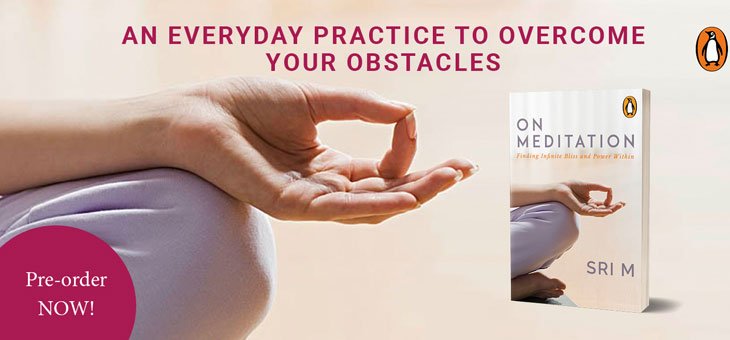
A brief history
Since ancient times, meditation has been used as a way to help people feel more at peace. And in recent years, meditation has increased in popularity due to its scientifically-proven benefits.
Meditation is a process that involves training the mind to focus, relax and redirect your thoughts.Meditation is intimately associated with spiritual and religious contexts. Many ancient civilizations used chants and rhythmic prayers to their gods. The earliest known record of meditation is from Hindu texts 5000 years ago. The Buddha, who is one of the major proponents of meditation, sat for years trying to reach enlightenment through meditation.
The practice of meditation can be seen in all religions–from Judaism to Islam to Christianity-it is an essential act of getting in touch with your spiritual being.


Before you read on, we thought you might like to watch our Mindfulness Exercise For Free. These science-based, comprehensive exercises will not only help you cultivate a sense of inner peace throughout your daily life but will also give you the tools to enhance the mindfulness of your clients, students or employees.
Can Your Life Really Be Changed Through Meditation?
1 – Meditation relieves overall stress. It can lighten the load of a busy day and relieve your physical and emotional stress through relaxation.
2– It helps you look young by getting rid of all that stress that can add wrinkles to your face and make you ill. You feel energized and rejuvenated, lightening your load and reducing feelings of sadness and despair.
3– Meditation gives you added energy. Your concentrated breathing and relaxation improves your blood circulation, giving you more energy to be productive and do enjoyable things in life.
4– Lowers your risk of cardiovascular disease and improves your immune system. Through relaxation and breathing techniques, meditation can lower your heart rate and blood pressure, making you healthier.
5– Meditation can improve your concentration level and clear your mind. When you’ve faced your demons and unnecessary thoughts, your mind is free to accommodate more important and pressing matters in your life.
6– Awaken higher levels of your creativity and potential. By weeding out the negative toxins in your mind, you have more freedom to explore things that will bring you more development and improvement.
7– Eliminate anger and fear. We often repress these emotions because they are sometimes too much to bear. When we openly accept them into our thoughts, we let them go and allow them to disappear.
8– When you let go of fear and anger, when you are happy and improved, it immediately improves your relationships with others.
9– It provides you with peace of mind and general happiness.
10– You develop tolerance. When you are less tense, less stressed, and happier, you become more calm in dealing with tense situations.
Here is a rough guide on the amount and length of meditation that might help you.estimates are approximations and might vary under different conditions.
Here is a rough guide on the amount and length of meditation that might help you.estimates are approximations and might vary under different conditions.
Science Also Believes The Benefit Of Daily Meditation
If there is one thing common in all of us, it is the flaming urge to be happy and satisfied in life. Whether a crying baby, an insecure teenager, or a responsible family person, we all seek something that would comfort us.
But the question is: Are we looking for happiness in the right place?
A Look at the Benefits of Meditation
Meditation establishes a secure connection between our internal and external worlds. It awakens the body and benefits all aspects of the conscious and subconscious layers of the mind. Out of the numerous perks that meditation gives, a few are listed below.
1. Meditation enhances empathy
Loving-kindness or compassion meditation fires neural connections to brain sites that regulate positive emotions like empathy and kindness. The deep state of flow that meditation induces builds social connectedness and make us more affectionate and amicable as a person.
2. Meditation improves cognition
Researchers agree that an excellent way for professionals to increase the likelihood of success is to keep meditation practice as a part of their daily routine. Studies have revealed that both transcendent and mindful meditation practices improve the brain’s problem-solving and decision-making strategies, which can bring a desirable shift in our professional life.
3. Meditation is a natural stress stabilizer
Stress is the body’s response to unforeseen adversities. Encountering immediate threats increase the level of cortisol, or stress hormone in the body, and activates the Autonomic Nervous system, which is responsible for fight-or-flight responses. Brain studies of regular meditators revealed that they have lower cortisol level in their brains, which explains their resilience and insightful nature.
4. Meditation promotes emotional health and well-being
Studies have shown that meditation improves self-image and self-worth. When we meditate, we get a clear picture of our mind and become aware of the thoughts that drive our emotions and actions at the moment.
A large-scale study found that regular meditation decreases the likelihood of developing depression and mood-related disorders (Jain, Walsh, Cahn, 2015). Besides some forms of meditative practices which also promoted positive thinking, as researchers stated, and could improve the overall emotional health of an individual.
5. Meditation increases attention by inducing a state of flow
Have you noticed how meditation absorbs you into the moment? Mindful awareness comes naturally to us when we meditate, and we reach ‘flow’ state where our mind is in complete harmony with itself. A study on the effects of an eight-week mindful meditation course found that people who are regular meditation practitioners had heightened attention and concentration span. Even people who meditated for short durations showed more focus than individuals who did not meditate at all.

What Does the Latest Research and Science Show?
A recent survey on the incidence of meditation in the US population indicated a marked increase in the number of adults and children who practice meditation every day (Black, Barnes, Clarke, and Stussman, Nahin, 2018). Psychologists and allied mental health practitioners agree on the effectiveness of meditation in reducing physical, mental, and emotional disturbances.
1. Meditation and Pain
A study by the National Center for Complementary and Integrative Health (NCCIH) found that mindful meditation reduces pain sensations in the body without using the brain’s natural opiates (Cherkin, Sherman, Balderson, Cook, Anderson, Hawkes, Hansen, and Turner, 2016). The research suggested that combining meditation practices with medication for treating pain conditions like osteoarthritis, headaches, and other chronic pains can be useful for providing long-term remedies.
2. Meditation and diseases
The National Center for Complementary and Integrative Health (NCCIH) in the US, has conducted studies to explore the impact of meditation on disorders like:
- Pain and fibromyalgia in teenagers.
- Stress-related disorders in adolescents and adults.
- Migraine, headaches, and hypertensive conditions.
- Psoriasis.
- Anxiety and depression.
Most of their research and reviews show that committing to a daily practice improves the overall quality of life, and has long-term benefits for staying emotionally and physically healthy. Furthermore, studies show that meditation had similar effects as medications in treating depression, anxiety, and other emotional problems.
3. Interesting Studies
1. Future Directions in Meditation Science
While most studies focus on exploring the benefits of meditation on physical and mental health conditions, this research on the science of meditation examined the connection of meditation to spirituality, transpersonal transcendence, and mystical abilities.
2. Cognitive Impact of Meditation
The Shamatha Project was a breakthrough investigation about the psychological benefits of meditation. Based on it, a journal on cognitive enhancement published research where scientists Anthony Zanesco and Clifford Saron, Ph.D. in Psychology, proved that continued meditation practices and retreats improved attention and cognition significantly.
4. Meditation and Well-being
A paper on Asian spiritualism proposed that meditation has positive impacts on happiness and subjective well-being.
Following trails of Dr. Herbert Benson’s study on meditation as a mechanism to find the ‘Mind-Body Balance’, the researchers of this paper discussed how meditative flow can help the body by optimizing blood pressure, regulating cardiac diseases, mitigating stress, reducing addiction, and regulating the Sympathetic Nervous System functioning, which is responsible for extreme fight-or-flight responses during stress.
5 Proven Health Benefits of a Daily Practice
1. More fitness
Workout and physical exercise may not be enough to gain ideal fitness. Many scientists, nutritionists, and researchers of allied health sciences have indicated that the pathway to fitness lies in holistic lifestyle modification – including nutritious food, physical workout, yoga, and meditation regularly.
2. More Focus
Some studies on meditation and its effects on attention showed how meditation improved care by controlling the alpha brain waves. The alpha waves in the brain operate the way we use our sense organs and respond to external stimulations.
3. More immunity
Studies on the impact of meditation on lowering the risk of cancer suggested that mindful relaxation and meditation practices boost the lymphocyte count in the body, and help in developing a natural shield for fighting toxic cells that create the fatal disease.
4. Reduced chances of age-related memory loss
By improving attention and focus, meditation helps the mind feel younger. Meditation practices like Kirtan Kriya, which involves chanting a mantra along with some specific finger movements to improve concentration, can help improve memory in dementia patients.
A List of the Proven Physical Health Benefits
As a form of mental training, meditation improves core physical and psychological assets, including energy, motivation, and strength. Studies on the neurophysiological concomitants of meditation have proved that commitment to daily practice can bring promising changes for the mind and the body.
- Meditation improves physical health by boosting the immune functions, regulating hormonal discharge.
- Some researchers found that long-term meditators had more disease-fighting chemicals in their body than non-meditators or beginners did.
- Gene studies showed that women who meditated were more fertile and delivered healthier babies than women who did not.
- By regulating the Sympathetic and Autonomic Nervous systems, meditation controls our responses during sudden stress encounters and prevents us from nervous breakdown and panic attacks.
- Meditation stabilizes blood circulation in the body and regulates blood pressure, heartbeat, metabolism, and other essential biological functioning.
- By bringing a positive shift in lifestyle, meditation improves sleep quality, and fosters weight loss.
One of the best places to buy meditation supplies is online including the giant Amazon [here are the best product on Amazon



0 Comments
Please do not enter any spam link in the comment box.